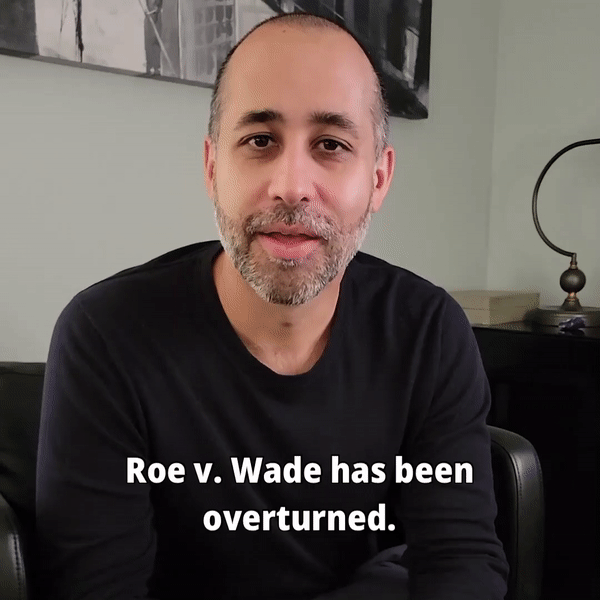After having a terrible experience with an online retailer, you decide to go and leave a review. After carefully crafting your experience into words, you go to one of the more well-known review sites and let the company have it. You feel good that you warned others not to make a purchase with them and close your computer not giving it a second thought.
A few days later…the email arrives. The retailer found your review online and now you are being threatened with a lawsuit. Turns out, you agreed not to leave them a negative review at the time you made your original purchase.
What? Could this be true?
Absolutely. Thanks to an “anti-review” clause, you are prohibited from the leaving a negative review. Many bury these type of clauses in their terms and conditions. You know, the 20 page document you must scroll through and click “accept” prior to completing your purchase. Most people never read these, but they are still bound by them once they click “accept.”
If the United States legislature gets it way, these type of clauses will be a thing of the past.
What do these anti-review clauses mean?
Sometimes referred to as a “gag’ clause, they simply mean that you agree not to leave a negative review for a business.
Due to the rise in the use of the Internet to talk about your experiences, businesses have suffered adverse effects from negative reviews. In fact, some companies have gone out of business due to negative reviews. While some rightfully so, some have been the victim of trolls or fake reviews from people who have never used their products or services.
Businesses are also harmed by the weight of these reviews as people having a negative experience are more likely to leave a review than someone with a positive experience. Meaning, online reviews can make it look like a business is completely worthless when that may not be the case.
Companies have gotten “smart” over the years, realizing that a negative online review can damage their reputation quickly. People rely heavily on reviews and will choose not to do business with someone if they believe what is written about them. As such, many have implemented clauses in their terms and conditions that state you cannot leave negative reviews.
Some people see this as a company trying to escape liability, but this is not necessarily the case.
Business try to protect themselves from having that one negative experience harm them. Some have even implemented clauses stating that you must first contact them with your concerns prior to leaving negative reviews, giving them an opportunity to make it right. This is something a consumer should do in the first place, but doesn’t always do.
Despite businesses trying to find that balance with online reviews, consumers are fed up. Some businesses have gotten to the point that they have not only threatened to sue customers for negative reviews, but have actually taken many to court.
The result? Welcome to the “Consumer Review Freedom Act.”
Understanding the Consumer Review Freedom Act:
Exactly how it sounds, the Act is set up to give consumers the right to leave reviews about those they do business with, without worry about a clause from the company to restrict that freedom.
Introduced by five U.S. Senators, including Senate Commerce Committee Chairman John Thune (R – South Dakota), the bill aims to keep businesses from using anti-review clauses to silence consumers. If they do, the Federal Trade Commission and state attorney generals would be allowed to enforce provisions of the Act to stop businesses from taking action against consumers.
If passed, what would the Consumer Review Freedom Act Mean?
Consumers would be free to leave negative reviews, even if the business they purchase from has a clause forbidding such. This is not something that is new, but basically will restrict a company’s right to take action against a consumer simply for leaving a negative online review. Many consumers will not see a difference as they are unaware of these clauses in the first place.
Businesses have cried foul when learning about this Act, but they actually are not as limited as they think. The Act does NOT preclude them for taking enforcement action against those who leave false reviews. As such, they are still afforded full access to defamation laws. If a troll leaves a review or someone lies about the company, they should be prepared to face civil litigation.
Again, if a company takes enforcement action based on a “gag” clause, the state attorney generals as well as the Federal Trade Commission have the right to enforce the Act. However, companies are not limited from seeking remedy against those leaving fake or defamatory reviews.
On November 19, 2015, the Act was approved by the Senate Commerce Committee. There is no word on when the Act will make it for a full debate and vote in the Legislature, or even if the President plans on signing it into law.
The Consumer Review Freedom Act could lead to more legislation:
While this may seem like a common sense approach to consumer transactions, it could lead to additional legislation limiting “fine print.”
One such attack that is already underway has to do with arbitration clauses in credit card transactions. Financial institutions have long used these type of clauses to avoid class action lawsuits. It has also helped them financially as they do not need to defend “nuisance” suits from consumers that cost them more to defend than simply agreeing to a settlement.
Arbitration clauses require the consumer to submit to arbitration, most often in the financial institution’s home state, to determine any breach of agreement. This type of forum is cheaper for the credit card companies and often causes a burden to the consumer due to not being able to travel to the forum state.
As with “gag” clauses, “arbitration” clauses are rarely read by a consumer. A recent expose by The New York Times detailed once such clause that was on page 5 of an agreement, most likely never to be looked at or read by the consumer.
Consumers have taken up the fight against financial instructions, but received a huge blow in November 2015 when the 2nd U.S. Circuit Court of Appeals rejected their argument that credit companies were colluding to implement arbitration clauses.
The next step for consumers will likely be to lobby the Legislature in hopes of similar legislation to the Consumer Review Freedom Act.
Dealing with reviews:
As a consumer, leaving a review for a company should never be done just despite. If you have a dispute over something you purchased, contact the business and give them an opportunity to make things right. After all, you may be surprised that the issue can be corrected quickly without going through the process of writing a long review.
As a business, embrace negative reviews as an opportunity to make yourself better. They are not always the end-all and a single negative review will unlikely force you to close your doors. Of course, contact your attorney if you feel that you have been defamed or are dealing with a troll, as legal remedies may be something you want to pursue.
So what do you think?
Is this type of legislation necessary? Will it protect both the consumer and businesses? Is this legislation even likely to pass the full Legislature?
Your thoughts below.



![Ultimate Legal Breakdown: Negative Online Reviews [e288]](https://www.pashalaw.com/wp-content/uploads/2017/06/Ultimate-Legal-Breakdown-Online-Reviews-1-1024x543.jpg)


![How Malls Can Require Stores To Be Open On Thanksgiving [e240]](https://www.pashalaw.com/wp-content/uploads/2015/11/iStock_000066139999_Small-1.jpg)
![The Federal Law That Would Prevent Yelp Gag Clauses [e237]](https://www.pashalaw.com/wp-content/uploads/2015/11/iStock_000008520917_Small.jpg)
![How Nightclub Cover Charges Sparked Discrimination Claims [e234]](https://www.pashalaw.com/wp-content/uploads/2015/10/iStock_000041229130_Small.jpg)
![How One Business Was Awarded Money From An Untrue Yelp Review [e226]](https://www.pashalaw.com/wp-content/uploads/2015/09/iStock_000036615928_Small.jpg)
![How Reddit Caused An Uproar With Unpaid Volunteers [e206] How Reddit Caused An Uproar With Unpaid Volunteers](https://www.pashalaw.com/wp-content/uploads/2015/07/How-Reddit-Caused-An-Uproar-With-Unpaid-Volunteers.png)
![Best Of The Second Hundred Episodes! [e201] Best Of The Second Hundred Episodes!](https://www.pashalaw.com/wp-content/uploads/2015/06/Best-Of-The-Second-Hundred-Episodes.jpg)
![The Decision That Could Change The Way Uber Does Business [e199] The Decision That Could Change The Way Uber Does Business](https://www.pashalaw.com/wp-content/uploads/2015/06/The-Decision-That-Could-Change-The-Way-Uber-Does-Business.jpg)




![Law in the Digital Age: Exploring the Legal Intricacies of Artificial Intelligence [e323]](https://www.pashalaw.com/wp-content/uploads/2023/11/WhatsApp-Image-2023-11-21-at-13.24.49_4a326c9e-300x212.jpg)
![Unraveling the Workforce: Navigating the Aftermath of Mass Layoffs [e322]](https://www.pashalaw.com/wp-content/uploads/2023/07/Untitled-design-23-300x212.png)
![Return to the Office vs. Remote: What Can Employers Legally Enforce? [e321]](https://www.pashalaw.com/wp-content/uploads/2023/01/Pasha_LSSB_321_banner-300x212.jpg)
![Explaining the Hans Niemann Chess Lawsuit v. Magnus Carlsen [e320]](https://www.pashalaw.com/wp-content/uploads/2022/10/LAWYER-EXPLAINS-7-300x169.png)
![California v. Texas: Which is Better for Business? [313]](https://www.pashalaw.com/wp-content/uploads/2021/07/Pasha_LSSB_CaliforniaVSTexas-300x212.jpg)
![Buyers vs. Sellers: Negotiating Mergers & Acquisitions [e319]](https://www.pashalaw.com/wp-content/uploads/2022/06/Pasha_LSSB_BuyersVsSellers_banner-300x212.jpg)
![Employers vs. Employees: When Are Employment Restrictions Fair? [e318]](https://www.pashalaw.com/wp-content/uploads/2022/05/Pasha_LSSB_EmployeesVsEmployers_banner-1-300x212.jpg)
![Vaccine Mandates Supreme Court Rulings [E317]](https://www.pashalaw.com/wp-content/uploads/2022/02/WhatsApp-Image-2022-02-11-at-4.10.32-PM-300x212.jpeg)
![Business of Healthcare [e316]](https://www.pashalaw.com/wp-content/uploads/2021/11/Pasha_LSSB_BusinessofHealthcare_banner-300x212.jpg)
![Social Media and the Law [e315]](https://www.pashalaw.com/wp-content/uploads/2021/10/WhatsApp-Image-2021-10-06-at-1.43.08-PM-300x212.jpeg)
![Defining NDA Boundaries: When does it go too far? [e314]](https://www.pashalaw.com/wp-content/uploads/2021/09/Pasha_LSSB_NDA_WordPress-2-300x212.jpg)
![More Than a Mistake: Business Blunders to Avoid [312] Top Five Business Blunders](https://www.pashalaw.com/wp-content/uploads/2021/06/Pasha_LSSB_Blunders_WP-1-300x212.jpg)
![Is There a Right Way to Fire an Employee? We Ask the Experts [311]](https://www.pashalaw.com/wp-content/uploads/2021/02/Pasha_LSSB_FireAnEmployee_Website-300x200.jpg)
![The New Frontier: Navigating Business Law During a Pandemic [310]](https://www.pashalaw.com/wp-content/uploads/2020/12/Pasha_LSSB_Epidsode308_Covid_Web-1-300x200.jpg)
![Wrap Up | Behind the Buy [8/8] [309]](https://www.pashalaw.com/wp-content/uploads/2020/11/Pasha_BehindTheBuy_Episode8-300x200.jpg)
![Is it all over? | Behind the Buy [7/8] [308]](https://www.pashalaw.com/wp-content/uploads/2020/09/iStock-1153248856-overlay-scaled-300x200.jpg)
![Fight for Your [Trademark] Rights | Behind the Buy [6/8] [307]](https://www.pashalaw.com/wp-content/uploads/2020/07/Fight-for-your-trademark-right-300x200.jpg)
![They Let It Slip | Behind the Buy [5/8] [306]](https://www.pashalaw.com/wp-content/uploads/2020/06/Behind-the-buy-they-let-it-slip-300x200.jpg)
![Mo’ Investigation Mo’ Problems | Behind the Buy [4/8] [305]](https://www.pashalaw.com/wp-content/uploads/2020/05/interrobang-1-scaled-300x200.jpg)
![Broker or Joker | Behind the Buy [3/8] [304] Behind the buy - Broker or Joker](https://www.pashalaw.com/wp-content/uploads/2020/04/Joker-or-Broker-1-300x185.jpg)
![Intentions Are Nothing Without a Signature | Behind the Buy [2/8] [303]](https://www.pashalaw.com/wp-content/uploads/2020/04/intentions-are-nothing-without-a-signature-300x185.jpg)
![From First Steps to Final Signatures | Behind the Buy [1/8] [302]](https://www.pashalaw.com/wp-content/uploads/2020/04/first-steps-to-final-signatures-300x185.jpg)
![The Dark-side of GrubHub’s (and others’) Relationship with Restaurants [e301]](https://www.pashalaw.com/wp-content/uploads/2015/04/When-Competition-Goes-Too-Far-Ice-Cream-Truck-Edition-300x201.jpg)
![Ultimate Legal Breakdown of Internet Law & the Subscription Business Model [e300]](https://www.pashalaw.com/wp-content/uploads/2019/05/Ultimate-Legal-Breakdown-of-Internet-Law-the-Subscription-Business-Model-300x196.jpg)
![Why the Business Buying Process is Like a Wedding?: A Legal Guide [e299]](https://www.pashalaw.com/wp-content/uploads/2019/03/futura-300x169.jpg)
![Will Crowdfunding and General Solicitation Change How Companies Raise Capital? [e298]](https://www.pashalaw.com/wp-content/uploads/2018/11/Will-Crowdfunding-and-General-Solicitation-Change-How-Companies-Raise-Capital-300x159.jpg)
![Pirates, Pilots, and Passwords: Flight Sim Labs Navigates Legal Issues (w/ Marc Hoag as Guest) [e297]](https://www.pashalaw.com/wp-content/uploads/2018/07/flight-sim-labs-300x159.jpg)
![Facebook, Zuckerberg, and the Data Privacy Dilemma [e296] User data, data breach photo by Pete Souza)](https://www.pashalaw.com/wp-content/uploads/2018/04/data-300x159.jpg)
![What To Do When Your Business Is Raided By ICE [e295] I.C.E Raids business](https://www.pashalaw.com/wp-content/uploads/2018/02/ice-cover-300x159.jpg)
![General Contractors & Subcontractors in California – What you need to know [e294]](https://www.pashalaw.com/wp-content/uploads/2018/01/iStock-666960952-300x200.jpg)
![Mattress Giants v. Sleepoplis: The War On Getting You To Bed [e293]](https://www.pashalaw.com/wp-content/uploads/2017/12/sleepopolis-300x159.jpg)
![The Harassment Watershed [e292]](https://www.pashalaw.com/wp-content/uploads/2017/12/me-2-300x219.jpg)
![Investing and Immigrating to the United States: The EB-5 Green Card [e291]](https://www.pashalaw.com/wp-content/uploads/2012/12/eb-5-investment-visa-program-300x159.jpg)
![Responding to a Government Requests (Inquiries, Warrants, etc.) [e290] How to respond to government requests, inquiries, warrants and investigation](https://www.pashalaw.com/wp-content/uploads/2017/10/iStock_57303576_LARGE-300x200.jpg)
![Ultimate Legal Breakdown: Employee Dress Codes [e289]](https://www.pashalaw.com/wp-content/uploads/2017/08/Ultimate-Legal-Breakdown-Template-1-300x159.jpg)
![Ultimate Legal Breakdown: Negative Online Reviews [e288]](https://www.pashalaw.com/wp-content/uploads/2017/06/Ultimate-Legal-Breakdown-Online-Reviews-1-300x159.jpg)
![Ultimate Legal Breakdown: Social Media Marketing [e287]](https://www.pashalaw.com/wp-content/uploads/2017/06/ultimate-legal-breakdown-social-media-marketing-blur-300x159.jpg)
![Ultimate Legal Breakdown: Subscription Box Businesses [e286]](https://www.pashalaw.com/wp-content/uploads/2017/03/ultimate-legal-breakdown-subscription-box-services-pasha-law-2-300x159.jpg)
![Can Companies Protect Against Foreseeable Misuse of Apps [e285]](https://www.pashalaw.com/wp-content/uploads/2017/01/iStock-505291242-300x176.jpg)
![When Using Celebrity Deaths for Brand Promotion Crosses the Line [e284]](https://www.pashalaw.com/wp-content/uploads/2017/01/celbrity-300x159.png)
![Are Employers Liable When Employees Are Accused of Racism? [e283] Racist Employee](https://www.pashalaw.com/wp-content/uploads/2016/12/Are-employers-liable-when-an-employees-are-accused-of-racism-300x159.jpg)
![How Businesses Should Handle Unpaid Bills from Clients [e282] What to do when a client won't pay.](https://www.pashalaw.com/wp-content/uploads/2016/12/How-Businesses-Should-Handle-Unpaid-Bills-to-Clients-300x159.png)
![Can Employers Implement English Only Policies Without Discriminating? [e281]](https://www.pashalaw.com/wp-content/uploads/2016/11/Can-Employers-Impliment-English-Only-Policies-Without-Discriminating-300x159.jpg)
![Why You May No Longer See Actors’ Ages on Their IMDB Page [e280]](https://www.pashalaw.com/wp-content/uploads/2016/10/IMDB-AGE2-300x159.jpg)
![Airbnb’s Discrimination Problem and How Businesses Can Relate [e279]](https://www.pashalaw.com/wp-content/uploads/2016/09/airbnb-300x159.jpg)
![What To Do When Your Amazon Account Gets Suspended [e278]](https://www.pashalaw.com/wp-content/uploads/2016/09/What-To-Do-When-Your-Amazon-Account-Gets-Suspended-1-300x200.jpg)
![How Independent Artists Reacted to Fashion Mogul Zara’s Alleged Infringement [e277]](https://www.pashalaw.com/wp-content/uploads/2016/08/How-Independent-Artists-Reacted-to-Fashion-Mogul-Zaras-Alleged-Infringement--300x159.jpg)
![Can Brave’s Ad Replacing Software Defeat Newspapers and Copyright Law? [e276]](https://www.pashalaw.com/wp-content/uploads/2016/08/Can-Braves-Ad-Replacing-Software-Defeat-Newspapers-and-Copyright-Law-300x159.jpg)
![Why The Roger Ailes Sexual Harassment Lawsuit Is Far From Normal [e275]](https://www.pashalaw.com/wp-content/uploads/2016/07/WHY-THE-ROGER-AILES-SEXUAL-HARASSMENT-LAWSUIT-IS-FAR-FROM-NORMAL-300x159.jpeg)
![How Starbucks Turned Coveted Employer to Employee Complaints [e274]](https://www.pashalaw.com/wp-content/uploads/2016/07/iStock_54169990_LARGE-300x210.jpg)
